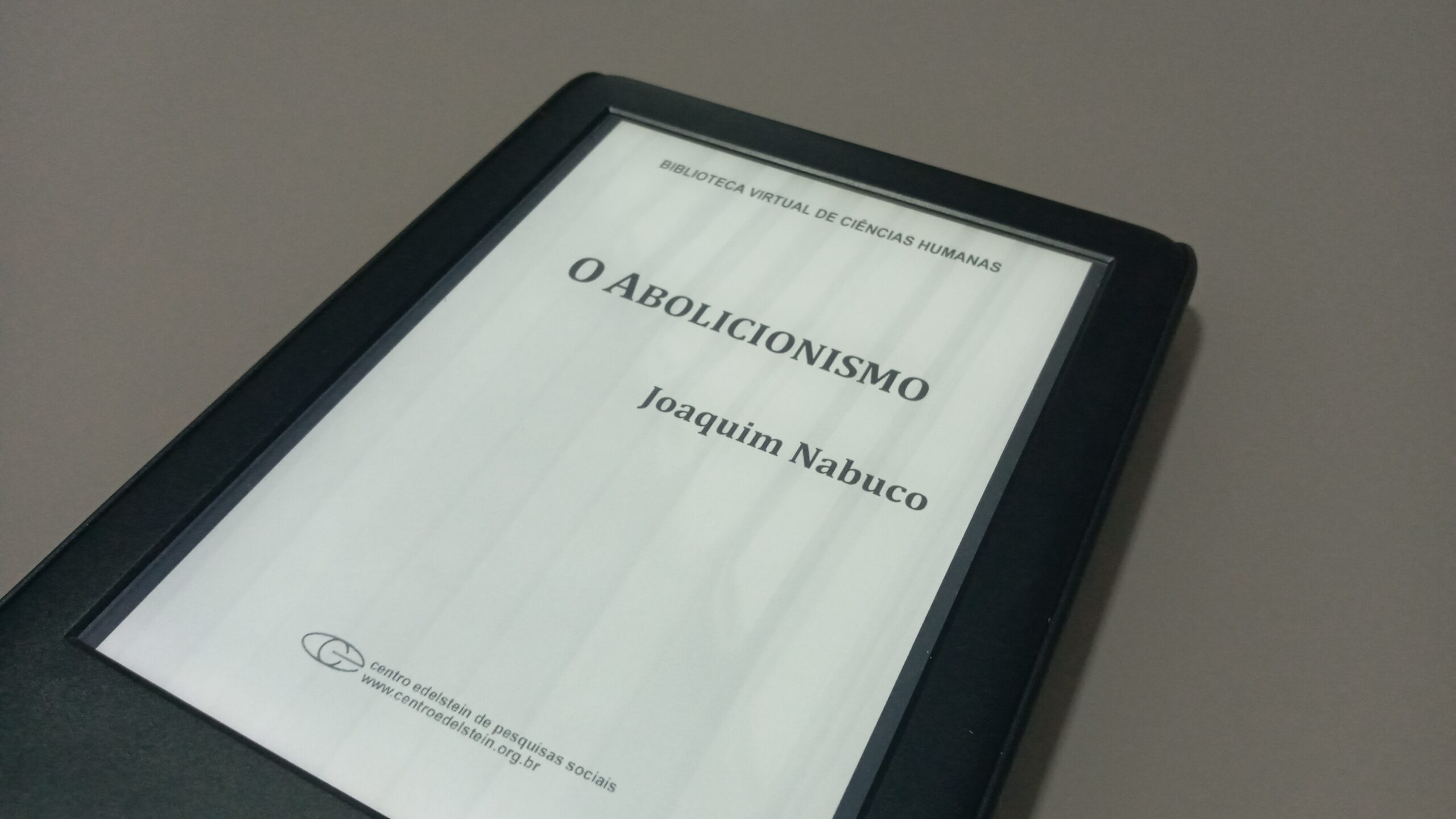The book Abolitionism, by Joaquim Nabuco, was concluded in 1883, already during the validity of several laws that should restrict slavery in the national territory, but still five years before the total abolition of slavery. It is, therefore, part of the campaign for abolition, of which Nabuco was, for decades, perhaps the main white voice, and it is invaluable for understanding the long historical, economic and political process that would eventually lead to the end of slavery, as well as the resistances and interests that were at stake in the second half of the 19th century.
Joaquim Nabuco makes clear in this book the importance of the freedom of the individual with which slavery took possession, and highlights the inefficiency of the Catholic Church to combat slavery, doing nothing to prevent the various slave auctions that took place in the national territory, nor the regime religious in the slave quarters, despite having all the immense power in a country still largely fanaticized by it. Abolitionism reports in detail the end of slavery in England and the United States of America, in which Joaquim Nabuco's desire to rebuild Brazil on free work and the union of races in freedom is evident.
Read too: The Kingdom That Was Not Of This World (Marcos Costa) | Review
The importance of the black race in the construction of Brazil was absurd and this is clear in Abolitionism, we can see how the Post Office, Hospitals, House of Lords, Churches and Schools depended on the black race to exist. Nabuco strongly reinforces the idea that the abolitionist movement did not support a civil war for such changes, as happened in the USA. And something mentioned by Nabuco in this book is the liberation of the slaves of Paraguay by the Conde d'Eu at the end of the Paraguayan War and reinforces the idea that the imperial family was totally against slavery, making it clear when he quotes Dom Pedro II, saying that if it depended on him, slavery would end long before.

Image: Matheus Araújo, 2022
Joaquim Nabuco says in the book that he is a liberal, however, I see many conservatives with YouTube channels, blogs and social media pages saying that he was a conservative, but this is just a fallacy. I prefer to believe in what Joaquim Nabuco wrote than to believe in what others say, and I recommend Joaquim Nabuco's book called My information, in it the liberal position of Joaquim Nabuco becomes clearer.
In the book Abolitionism, Joaquim Nabuco's discomfort with the gradual emancipation is clear, but he asks the slaves to trust the process and says that it could bear fruit in the future.

Image: Matheus Araújo, 2022
Abolitionism it is a book with slow reading due to a more robust Portuguese and because of that it may need repetitions, but it is a recommended book for those who want to understand more about the abolition of slavery, national identity and, of course, the magnificent mind that had Joaquim Nabuco. It is a very objective book, very detailed and that clearly says what we are looking for in answers about the movement.
Educate your children, educate yourselves, in the love of the freedom of others, the only way of not being your own freedom a gratuitous donation of Destiny, and of acquiring the conscience of what it is worth, and the courage to defend it. – Joaquim Nabuco
TITLE: ABOLITIONISM
AUTHOR: JOAQUIM NABUCO
PUBLISHER: SciELO – CENTRO EDELSTEIN
YEAR: 2011
PAGES: 200
Did you like the review? Leave your comment and follow me on social media!
Note
- History
- Reading
- Illustration
- Typography
- Diagramming
Conclusion
Abolitionism it is a book with slow reading due to a more robust Portuguese and because of that it may need repetitions, but it is a recommended book for those who want to understand more about the abolition of slavery, national identity and, of course, the magnificent mind that had Joaquim Nabuco. It is a very objective book, very detailed and that clearly says what we are looking for in answers about the movement.
Note
- History
- Reading
- Illustration
- Typography
- Diagramming
Conclusion
Abolitionism it is a book with slow reading due to a more robust Portuguese and because of that it may need repetitions, but it is a recommended book for those who want to understand more about the abolition of slavery, national identity and, of course, the magnificent mind that had Joaquim Nabuco. It is a very objective book, very detailed and that clearly says what we are looking for in answers about the movement.










































